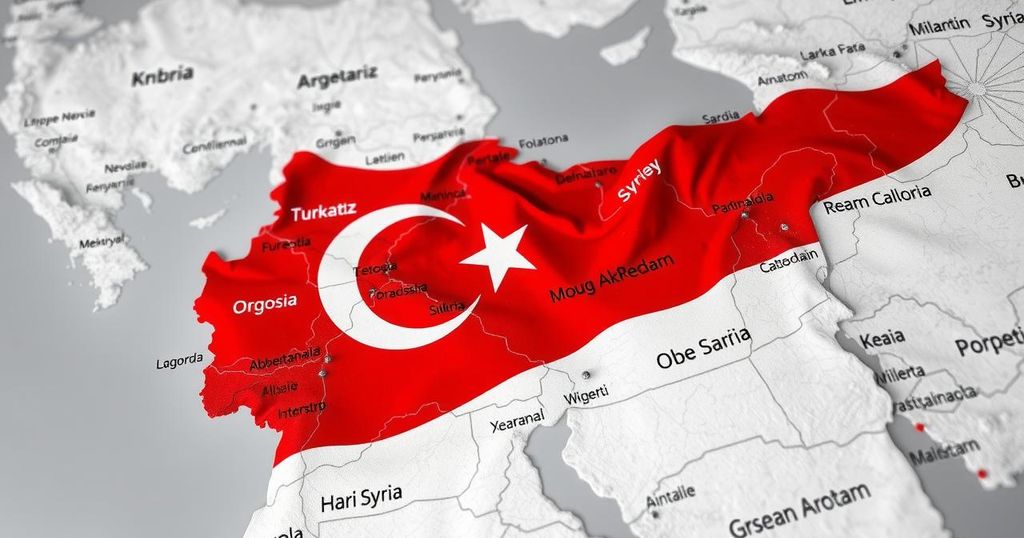After the reported fall of Assad, many analysts have declared Turkey the victor in Syria. However, this narrative overlooks the complexities of the situation. Although Turkey has influential allies and potential economic opportunities, significant barriers impede its ability to assert dominance. As regional dynamics shift, with Arab nations re-establishing relations with Syria, Turkey’s position is more precarious than it may seem, compounded by ongoing challenges with Kurdish groups.
Since the fall of Bashar al-Assad in December, discourse surrounding Turkey’s newfound dominance in Syria has proliferated, with many analysts eagerly declaring Turkey as the clear winner. However, the situation is far more complex, and such assertions may be premature. While Turkey indeed maintains a beneficial position due to its support for factions responsible for Assad’s decline, this does not equate to having secured strategic control or influence over Syria moving forward.
Turkey has cultivated relationships with significant groups, such as Hayat Tahrir al-Sham (HTS) and the Syrian National Army, which played critical roles in the regime’s downfall. President Erdogan’s proximity to Syria could allow Turkish firms to benefit from reconstruction contracts, given Turkey’s established expertise in infrastructure development. But this advantageous position does not translate directly into victory.
The reality is that for Turkey to consolidate its influence in Syria, significant barriers remain. While Erdogan has leveraged Turkish alliances in the conflict, the narrative of a Turkish victory obscures the evolving dynamics and emerging partnerships in Syria. HTS and other emerging leaders have begun to establish their independence from Turkish oversight, making it clear that Turkey is not the sole powerbroker in the region.
Furthermore, the renewed interest of Arab nations in re-establishing ties with Syria underlines Turkey’s waning influence. Countries like Saudi Arabia, Iraq, and the UAE are methodically working to position themselves favorably in Syria, while Turkey’s self-proclaimed cultural affinity with Arab neighbors does not necessarily confer the advantage it claims. Turkey’s strategic miscalculations over the past years also render any claims of victory tentative at best.
The situation in Syria has been volatile since the onset of the civil war in 2011. Turkey has involved itself deeply in the Syrian conflict, supporting various factions opposed to the Assad regime. With the fall of Assad, the narrative has emerged within both foreign-policy circles and Turkish circles that Turkey has emerged victorious. However, this article contends such sentiments overlook critical realities about the nature of influence and power following significant regime changes in conflict zones. The complexities of post-Assad Syria also extend to the ongoing Kurdish issue, where Turkey faces additional challenges. The Syrian Democratic Forces (SDF), predominantly led by the Kurdish People’s Protection Units (YPG), remains a formidable obstacle for Turkey’s ambitions. This conflict adds another layer to the ongoing political maneuvering in the region.
In conclusion, while Turkey appears to have a favorable position following the fall of Assad, claims of victory are not merely premature; they are fundamentally flawed. The evolving landscape in post-conflict Syria presents new challenges that Turkey must navigate, revealing external partnerships, particularly from Arab states, and the resilience of local entities such as HTS. Moreover, ongoing tensions surrounding Kurdish nationalism present additional obstacles to firmly establishing Turkish dominance. Therefore, assertions of Turkey’s success in Syria should be approached with caution and an understanding of the complex realities on the ground.
Original Source: foreignpolicy.com






